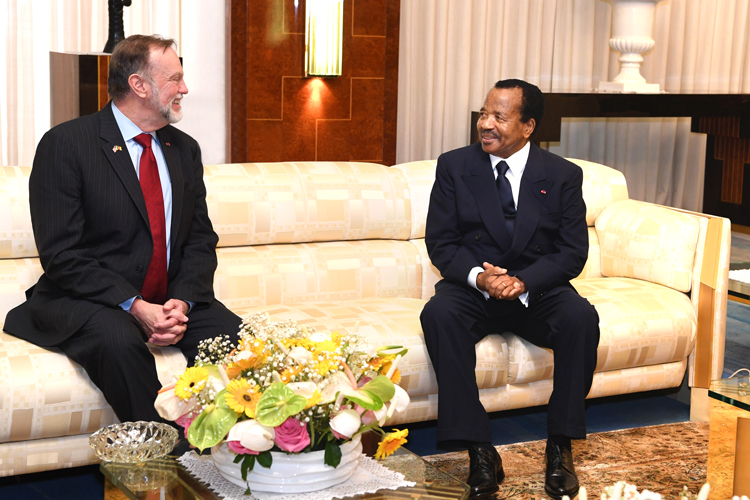As Southern Cameroons Crisis continues, U.S. officials struggle to exert positive influence
On September 8, U.S. Senators Jim Risch and Ben Cardin, joined by an impressive bipartisan group of cosponsors, introduced a resolution calling for an end to the violence in Cameroon and for inclusive dialogue to address the underlying political tensions that are at the root of the conflict between the state and anglophone separatists. They are the latest in a large and diverse group of senior U.S. officials who have worked to highlight the crisis in Cameroon. Assistant Secretary for African Affairs Tibor Nagy has engaged in direct and personal diplomacy aiming to influence the situation. Congresswoman Karen Bass, chair of the House Foreign Affairs Subcommittee on Africa, has been resolute in condemning abuses, and has worked on a bipartisan basis to clearly communicate U.S. concerns and support for peace talks to Biya’s government, including in a resolution introduced in the House of Representatives last year. The Trump Administration removed Cameroon from the list of countries eligible for trade benefits under the African Growth and Opportunity Act, and has scaled back military assistance to the country.
But Cameroon is a case in which concern in Washington does not translate into effective influence. In Cameroon itself, little political progress has been made as various factions grapple for control of the talks and sometimes competing lines of effort stop and start. Meanwhile, the people of Cameroon continue to suffer despite calls for a ceasefire in light of the COVID-19 crisis.
Just this week, the army launched a new campaign in Bamenda, ostensibly to bring law and order to the city. The BBC reported that the operation involved house-to-house searches, seizures of citizens’ property, and even indiscriminate shooting. Residents of the city largely stayed home, caught between the government and separatists who have called for citizens to stay home as a form of protest, in an all-too-familiar impossible situation. This summer the Norwegian Refugee Council named Cameroon the world’s most neglected displacement crisis, noting that half a million people have been forced from their homes.
It can be painful to reckon with the limited capacity of the United States, or of any external power, to bring seriousness of purpose to urgently needed political dialogue. But ultimately civil conflicts with political roots cannot be resolved without domestic will and leadership, and Cameroon’s ossified political class has thus far failed to muster either. But the efforts of U.S. officials still matter. Should those vital domestic ingredients emerge, the United States is well-positioned to support a process that prioritizes the urgent needs of civilians and gives all parties in a tremendously diverse country greater opportunity in the future.
Source: Council for Foreign Relations





